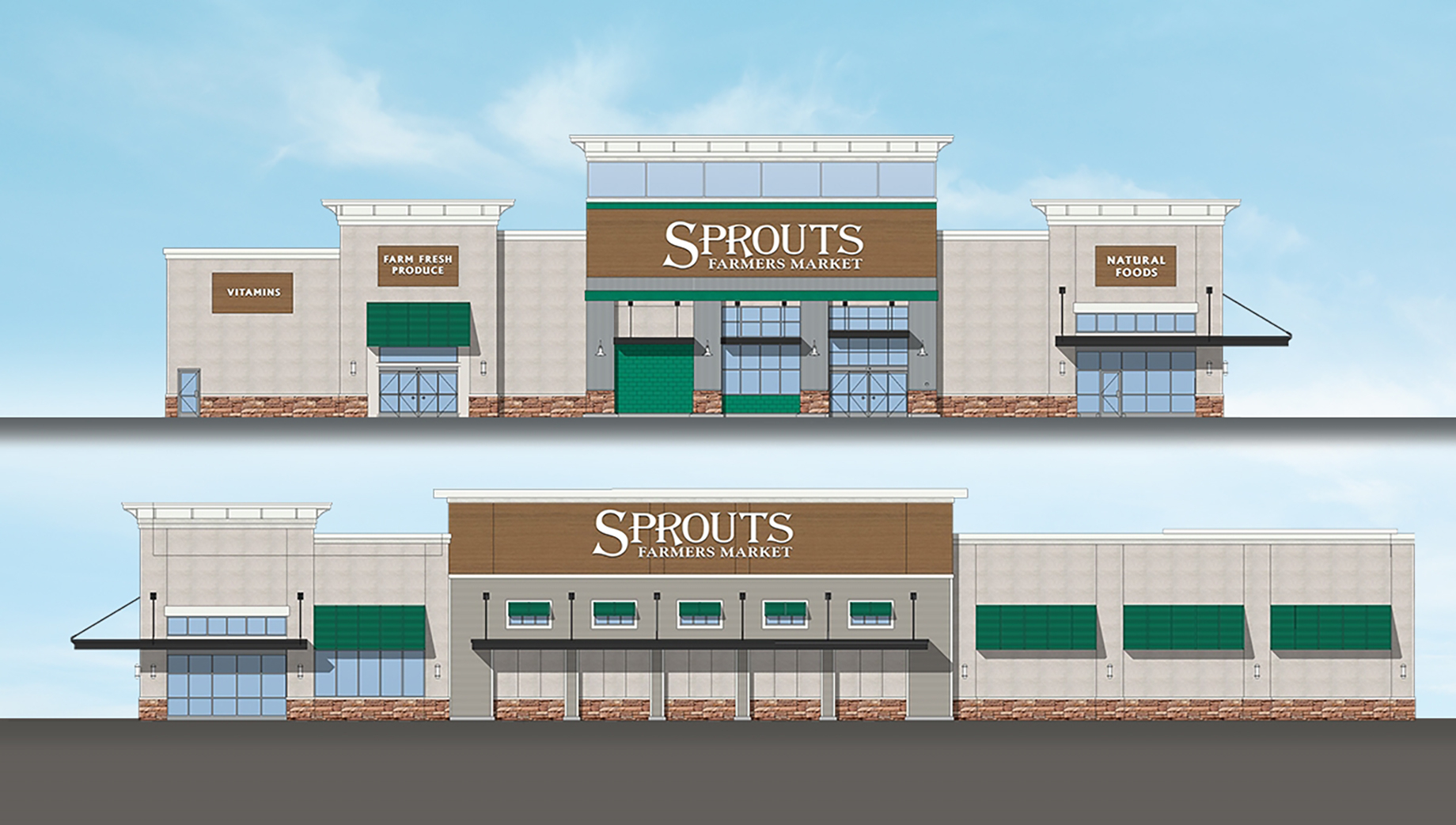Most retail property developers are putting the brakes on expensive new projects until they can assess the impact of COVID-19. To accommodate tenants eager to open stores, others are plowing ahead with centers and redevelopments that were already well underway.
At the end of 2019, Regency Centers had $350 million of development and redevelopment in process and nearly $225 million more planned. “Since the onset of the pandemic, we’ve diligently reevaluated future timing and scope for each of these projects,” chief investment officer and executive vice president Mac Chandler said on an earnings call. “As a result of this process, we intend to finish construction on those projects that are nearly complete, as well as those where we have lease obligations.” The company will spend about $80 million to wrap those projects up, he said, including the new, 71,937-square-foot, Sprouts Farmers Market-anchored Village at Hunter’s Lake in Tampa, Florida, and redevelopment of the 48,299-square-foot Point 50 in Fairfax, Virginia.

A rendering of Regency Centers’ Village at Hunter’s Lake in Tampa, Florida
Regency will defer $145 million of redevelopment and expansion, including Carytown Exchange in Richmond, Virginia; Culver Public Market in Los Angeles; Market Common Clarendon in Arlington, Virginia; and Serramonte Center in Daly City, California. “We intend to phase our investment in these projects,” Chandler said.
Supermarkets are driving much of the new construction that is going ahead. Site Centers reduced its construction and redevelopment pipeline by 46 percent, leaving about $30 million to fund ongoing projects, including 10 new anchor stores, said Mike Makinen, executive vice president and COO. “Construction activity outside of a few select states like California and New Jersey has been largely uninterrupted thanks to our construction team’s efforts, and we feel confident on meeting our obligations to get stores open.” One deferred project is the addition of multifamily space at Shoppers World in Framingham, Massachusetts.
Kimco Realty had only a few active projects when the crisis hit, leaving its pipeline largely on track, CEO Conor Flynn said. The company’s two primary projects are close to completion. At Dania Point in Florida, construction has been ongoing, as Urban Outfitters and Anthropologie build out their spaces. Kimco also is redeveloping Staten Island, New York’s Hylan Plaza into The Boulevard. Local officials approved the construction of the new ShopRite as essential, he said. As far as minor construction projects go, Kimco has “postponed nearly $100 million of capital expenditures originally planned for this year,” Flynn said.
RPAI reduced planned development spending for this year by $75 million to $100 million, primarily by halting multifamily and office space at its Carillon project in Prince George’s County, Maryland, said Shane Garrison, president and COO. During the first quarter, the company broke ground on $12 million of new construction at Shoppes at Quarterfield, in Severn, Maryland, and Southlake Town Square near Dallas. “We continue to anticipate on-time, on-budget completion of these 100 percent-pre-leased projects at double-digit returns,” Garrison said.
Brixmor President and CEO Jim Taylor said the firm will push $110 million of anticipated 2020 capital expenditures into 2021. “With a priority on liquidity and an eye towards a more favorable cost environment as we emerge from the crisis, our construction and redevelopment teams are working with tenants to extend certain opening time frames,” he said.
At Weingarten Realty, “all three of our large new developments remain active,” said Andrew Alexander, chairman, president and CEO. The firm expects to complete two supermarket-anchored, mixed-use developments near Washington, D.C., and one in Houston by mid-summer. “Given the small amount of capital required to complete and our strong liquidity position, we do not anticipate that the pandemic will interrupt these projects,” Alexander said. “We are reviewing the rental rates at each project, but it’s challenging to estimate rents and lease-up timing in this environment.”
At the same time, Federal Realty Investment Trust is paring down its development spending from $35 million to about $10 million a month. The company shut down construction projects in Massachusetts and California but is proceeding with construction at CocoWalk in Coconut Grove, Florida, and the 909 Rose building at the mixed-use Pike & Rose in Maryland, as both are nearly complete. “The start of construction on all new development projects are on hold until we have some better visibility on the length of the pandemic effects,” Said Don Wood, president and CEO.
Mall owners are reinvesting in existing properties, as few mall-based tenants are growing during the pandemic. Macerich is trimming its redevelopment budget for the remainder of 2020 by 60 percent to $60 million. “One of our liquidity measures was to defer most of our redevelopment where possible,” said CEO Tom O’Hern. The developer will finish work on Fashion District in Philadelphia, which it co-owns with PREIT, and the luxury wing of Scottsdale Fashion Square in Arizona. It has deferred most other redevelopments beyond 2020, he said.
Simon, meanwhile, has suspended or eliminated more than $1 billion of redevelopment and new development globally. “Our current investment focus is on projects nearing completion,” said David Simon, chairman and CEO. “We will reevaluate all suspended projects over time.”
By Brannon Boswell
Executive Editor, Commerce + Communities Today


